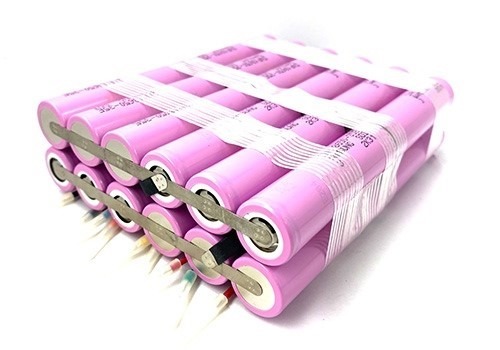Li-ion power battery packs play a crucial role in supporting the growth of smart grid technologies and grid-level energy management systems. Li-ion battery packs are at the forefront of energy storage solutions, offering superior performance and efficiency compared to traditional nickel or lead-based chemistries. With their reduced size, weight, and high energy density, Li-ion battery packs are the preferred choice for various applications, including smart grid technologies and grid-level energy management systems.
Enabling Smart Grid Technologies
Li-ion power battery packs enable smart grid technologies by providing reliable energy storage solutions that enhance grid stability, efficiency, and flexibility. These battery packs can store excess energy generated from renewable sources such as solar panels and wind turbines, allowing for better integration of renewable energy into the grid. Additionally, Li-ion battery packs support demand response programs by providing fast-response energy storage capabilities to mitigate peak demand and balance grid load.
Facilitating Grid-Level Energy Management
The integration of Li-ion power battery packs with grid-level energy management systems optimizes energy utilization and enhances overall grid performance. Energy management systems utilize advanced algorithms to control the charging, discharging, and storage of energy within Li-ion battery packs based on real-time grid conditions and demand patterns. This dynamic energy management enables efficient load balancing, voltage regulation, and frequency control, improving grid reliability and resilience.
Benefits of Li-ion Power Battery Packs
- Fast Response: Li-ion battery packs offer fast response times, allowing for rapid adjustments to changes in grid demand or supply. This capability is essential for maintaining grid stability and ensuring uninterrupted power supply to consumers.
- High Efficiency: Li-ion battery packs have high efficiency levels, minimizing energy losses during charging and discharging processes. This translates to more effective energy storage and utilization within the grid, resulting in cost savings and reduced environmental impact.
- Scalability: Li-ion power battery packs are highly scalable, allowing for modular expansion or contraction based on evolving energy needs. This scalability enables grid operators to easily adapt to changing demand patterns and integrate additional renewable energy sources as needed.
Case Studies and Applications
Numerous case studies demonstrate the effectiveness of Li-ion power battery packs in supporting smart grid technologies and grid-level energy management systems. From peak shaving and load shifting to frequency regulation and microgrid integration, Li-ion battery packs have proven to be versatile and reliable solutions for enhancing grid performance and resilience.
Enhanced Grid Stability
Li-ion power battery packs contribute to enhanced grid stability by providing grid operators with greater control over energy storage and distribution. These battery packs can quickly respond to fluctuations in demand or supply, helping to maintain grid frequency and voltage within optimal ranges. By improving grid stability, Li-ion power battery packs reduce the risk of power outages and blackouts, ensuring a reliable and resilient electricity supply for consumers and businesses alike.
Ending Notes
Li-ion power battery packs are instrumental in supporting the growth of smart grid technologies and grid-level energy management systems. By providing reliable energy storage solutions with fast response times, high efficiency, and scalability, Li-ion battery packs enable grid operators to optimize energy utilization, enhance grid reliability, and integrate renewable energy sources more effectively. As smart grid technologies continue to evolve, Li-ion power battery packs will play an increasingly important role in shaping the future of energy distribution and management.

